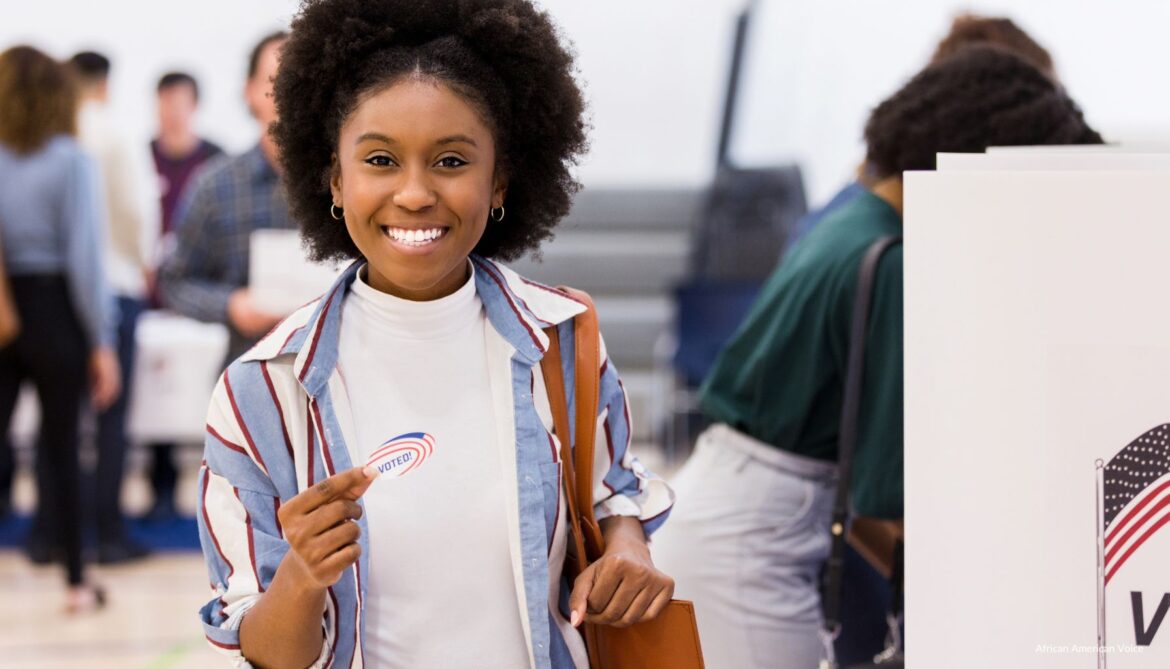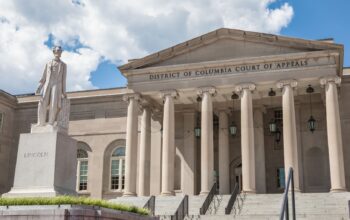As the U.S. electorate grows more diverse, mobilizing historically marginalized voters is more politically decisive than ever this election year.
At a Friday, February 23 Ethnic Media Services briefing, voter engagement experts discussed how organizing community voters can make political change.
What community votes can win
“If we’re going to affect social change, it has to be through the people that are most affected by it to begin with,” said Ernie Serrano, Integrated Voter Engagement Organizer with Strategic Concepts in Organizing and Policy Education (SCOPE).
SCOPE first formed to mobilize South Los Angeles communities after the Rodney King riots in 1992, Serrano explained, “because the powers in our communities weren’t investing in us. There was heavy redlining, policing,” failed responses to the crack epidemic and corporate and environmental exploitation. “We wanted to have a say in how our elected leaders were governing us.”
Because communities of color are often disenfranchised, he continued, many members are not as politically informed, and so “the grassroot effort to have a voice at the table requires telling our community why it’s important to vote, showing what it can win.”
One major recent victory by SCOPE involved the 2022 election of LA Mayor Karen Bass, who gave up her congressional seat to run a grassroots campaign against billionaire Rick Caruso.
“So, you have a grassroots leader, with only $10 million in budget, against someone who spent $109 million dollars with big business support … recreating her through ads to the point that people thought she was an entirely different person than who she was,” Serrano said. “These are odds that, historically, people don’t beat, and we won.”
How was it possible?
“Because he didn’t have a concept of what it meant to reach the demographic that he needed to reach in order to gain the seat,” explained Serrano. “If he was really interested in bettering conditions in LA like homelessness and environmental issues, he would have invested in LA residents …who are often disengaged from the voting process because they don’t believe the system was designed for us, that it’s already rigged for the powers that be. But that’s not necessarily true.”
Empowering voters by counting voters
The power of community voting “starts with the Census,” said Debbie Chen, Houston-based community activist and Executive VP with the National OCA, Asian Pacific American Advocates.
“It’s not simply ‘Come election time, go vote,’ because redistricting is actually the best way to conduct mass voter suppression,” she explained. “The Census determines who gets counted for redistricting, which determines who gets to govern, vote and spend in certain areas.”
Redistricting is the process through which congressional districts are drawn every ten years, following the decennial Census count.
For the average first-generation immigrant, ‘The importance of being counted,’ that message alone doesn’t necessarily resonate,” Chen continued. “But when you approach it from the perspective that being counted lets you decide who gets to spend your tax dollars, how much of your money comes back to your area to get roads built, schools, nice sidewalks as opposed to ditches — everybody understands money.”
“Many people in the new immigrant AAPI community don’t realize how your vote gives you power to influence your community this way,” she added. Although AAPI are the fastest-growing U.S. ethnic group, “neither party has traditionally invested in outreach to the AAPI community, despite the fact that in many areas our vote can make that margin of difference in closer races.”
In Texas, for instance, eligible AAPI voters grew by 74% between 2010 and 2020, compared to a 21% increase in overall eligible voters statewide.
The power of voting lies in “making sure that we get counted, that our influence over our community doesn’t get diluted through racial gerrymandering,” Chen said. “It should come down to who can best invest in where we live.”
The value of community votes
“Politics is local,” said Anneshia Hardy, executive director of Alabama Values. “The message of ‘If your vote wasn’t important, they would stop it’ doesn’t ring true because of these coordinated efforts to dilute our vote, the value of it.”
White men, for example, are 30% of the population but hold 62% of U.S. elected offices, she said — often as a result of incumbency and racial redistricting such as in the Milligan fair mapping case, which Alabama Values helped win last year in favor of two newly redrawn majority-minority districts reflecting the state’s growing Black electorate.
Although white voters are historically more likely to turn out than other ethnic groups, ethnic voters make up increasingly decisive electorates in battleground states, while the share of non-Hispanic White eligible voters has been declining since 2000, according to Pew.
That electoral gap also extends across generations, with Alabamians under 45 comprising 1.7 million of the voting population, but only half of those voters cast ballots, compared to 70% of 2.1 million voters over 45.
In total, 2.3 million Alabamians voted — a record number in terms of volume, but one which represented only 62% of voters statewide, with 1.4 million eligible Alabamians not having voted.
How do we show the value of community votes to those who do not engage?
“By helping voters see themselves in the solution to issues that matter to them — social justice, health care, education,” said Hardy. “Who controls the narrative has power over tangible community outcomes.”
“The notion that voters of color abstain because they feel their vote doesn’t matter fails to acknowledge the deeper issue at play,” she continued. “Many of these voters are disappointed not because they undervalue their vote, but because they see unkept political promises that persist despite their vote.”
Currently, Alabama Values is battling Senate Bill 1, a piece of state legislation that makes absentee ballot voting a felony — worsening the ability of many Alabamians, particularly those of color living in remote areas, to vote at all.
“Even in the midst of trying to get people to vote, we’re fighting to ensure that everyone has access to the ballot at all,” added Hardy. “To engage these voters, particularly voters of color, we must address their legitimate concerns about the democratic process by working to make it more responsive to what they want.”
Source: Published without changes from Ethnic Media Services




